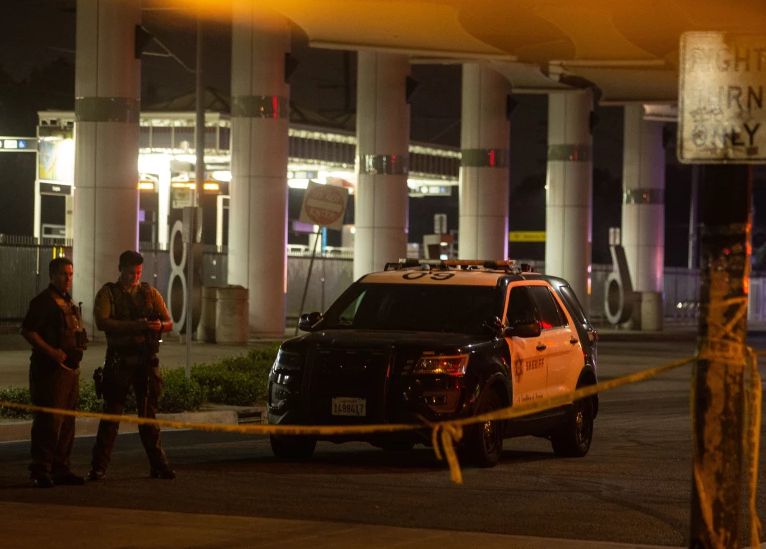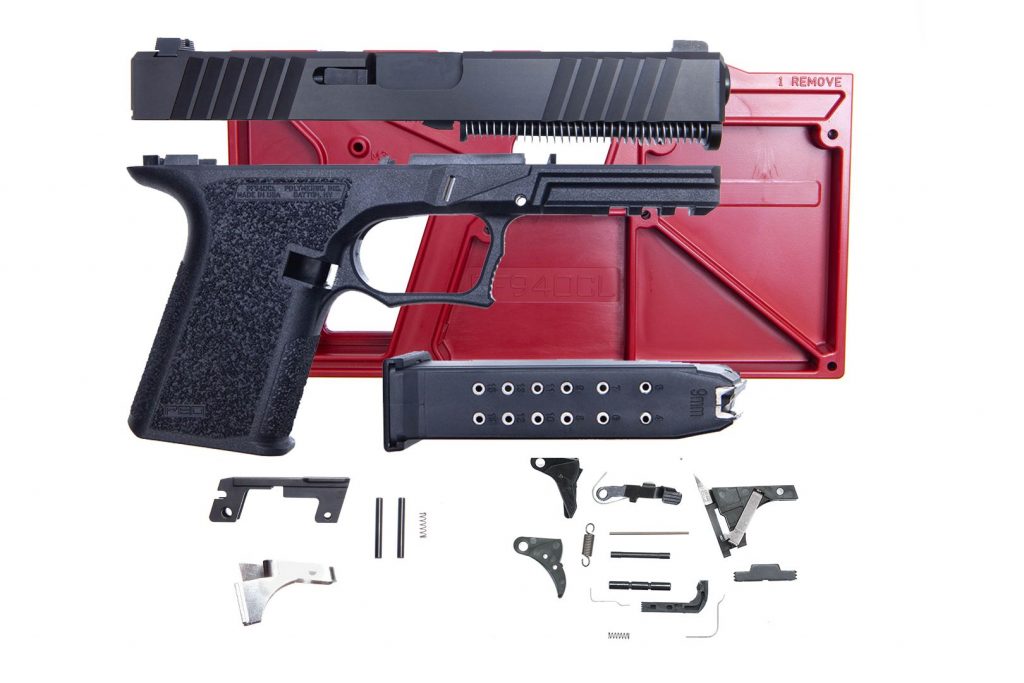The nominations for the 2021 3D Printing Industry Awards are now open. Who do you think should make the shortlist? Have your say now.
Two LA Sheriff’s Deputies have initiated legal proceedings against pistol kit manufacturer Polymer80 after being shot by one of its firearms last year.
In their lawsuit, the officers allege that Polymer80 negligently sold an “untraceable home-assembled ghost gun kit,” which later seriously injured them during an ambush in Compton. The case is just the latest in a string of attempts by U.S. authorities to clamp down on unlicensed firearms, but it could set a precedent for future issues that arise around self-assembled guns, which are often 3D printed.

A case of untraceable identity
Deputies Claudia Apolinar and Emmanuel Perez-Perez’s case is predicated on an ambush that took place in September 2020, during which they were shot in the head and arms while sitting in their police cruiser. Since then, neither officer has been able to return to work, with Apolinar suffering a broken jaw and arms, and Perez-Perez requiring the implantation of metal plates to hold his bones together.
The case raises issues around homemade firearms given that the Deputies’ alleged assailant Deonte Lee Murray had previous criminal convictions, and was unable to buy a normal gun. Despite this, Murray managed to acquire a PF940C kit, which is designed as a frame replacement for a Glock 19 or 23, without Polymer80 notifying the authorities, before attacking law enforcement officers late last year.
To make matters worse, the gun used in the shooting contained no identifiable markings, just the manufacturer’s ‘P80’ logo, thus the Deputies are now suing, claiming that Polymer80 “knew their firearms were likely to be used for criminal purposes,” and they’re therefore seeking “punitive and exemplary damages in an amount sufficient to punish and deter the Defendant [Polymer80’s] conduct.”
“The shooter was able to commit the ambush because the Defendants’ deliberate and reckless acts created a direct and secondary market… with easy access to unserialized ghost guns,” reads the lawsuit. “The shooter chose to shoot the Deputies with this Polymer80 ghost gun, in substantial part, because he knew it was unserialized and untraceable by normal means.”
For its part, Polymer80 has reportedly said that it has “no public statements to make at this time,” when contacted for comment on the case.

The legality of Polymer80 kits
The handgun in question was constructed using a PF40C ‘Buy, Build, Shoot’ kit, which can usually be bought for $575 via the Centennial Gun Club, although the listing has since been removed. As a result, the kit is actually pricier than a conventional Glock 19, but the fact that Polymer80’s products can be bought without background checks or serial numbers has raised concerns from some lobbying groups.
Apolinar and Perez-Perez’s lawsuit, for instance, has been filed by Everytown Law, a legal firm that has previously sued several other ghost gun parts providers. What’s more, according to the U.S. Bureau of Alcohol, Tobacco and Firearms (ATF), it recovered 23,906 suspected ‘ghost guns’ between 2016 and 2020, potentially making them a rising problem.
The issue with regulating U.S. homemade firearms is that many are not actually considered guns in the eyes of the law. Under the Gun Control Act of 1968, unless weapons are “designed to or may be readily converted to expel a projectile by the action of an explosive, [or] the frame or receiver of any such weapon,” they fall outside its remit.
According to the U.S. Department of Justice itself, the firearm used by Murray during his attack last year is not legally considered a gun either, because it’s incapable of housing a Glock locking block and was sold without ‘a trigger-pin hole.’
The weapon was also based around an ’80 percent receiver,’ meaning that it’s unfinished enough to evade regulation by the ATF, but President Biden has indicated that he intends to close this ‘loophole.’ Back in April, it was reported that the Biden administration was seeking changes that would see all home-made firearms become recognized as guns, which require serial numbers and checks.
Polymer80 has previously fought such reforms, including Nevada Assembly Bill AB286, which proposed that unlicensed customers be banned from acquiring unmarked guns, saying at the time that the bill “stripped Nevada citizens of their constitutionally-protected rights,” but cases such as Everytown Law’s will only serve to ramp up the pressure for further ghost gun regulation to be introduced.

A printed gun clampdown?
Despite the concerted efforts of manufacturers, regulators, and social media firms, 3D printed gun kits continue to be readily available via filesharing sites across the internet. Back in 2019, for example, 3D printer manufacturer Dagoma partnered with TBWA/Paris to distribute fake and unusable gun files in an attempt to frustrate potential downloaders, albeit to little effect.
On the legal front, the U.S. Bureau of Industry and Security (BIS) has also announced a change in jurisdiction over 3D printed guns. Just last month, the agency revealed that those ‘manufacturing, exporting or ‘furnishing’ 3D printed firearms,’ are now subject to much tighter Export Administration Regulations (EAR).
While U.S. authorities have not always sought to clamp down on 3D printed guns, and three years ago, the U.S. Department of Justice actually overturned a ban on sharing gun files, it appears that President Biden has become intent on preventing their wider proliferation, and the issue could rear its head again in the near future.
The nominations for the 2021 3D Printing Industry Awards are now open. Who do you think should make the shortlists for this year’s show? Have your say now.
To stay up to date with the latest 3D printing news, don’t forget to subscribe to the 3D Printing Industry newsletter or follow us on Twitter or liking our page on Facebook.
For a deeper-dive into additive manufacturing, you can now subscribe to our Youtube channel, featuring discussion, de-briefs and shots of 3D printing in-action.
Are you looking for a job in the additive manufacturing industry? Visit 3D Printing Jobs for a selection of roles in the industry.
Featured image shows a PF40C ‘Buy, Build, Shoot’ kit, much like the one built to attack officers Apolinar and Perez-Perez. Image via American Weapons Components.



